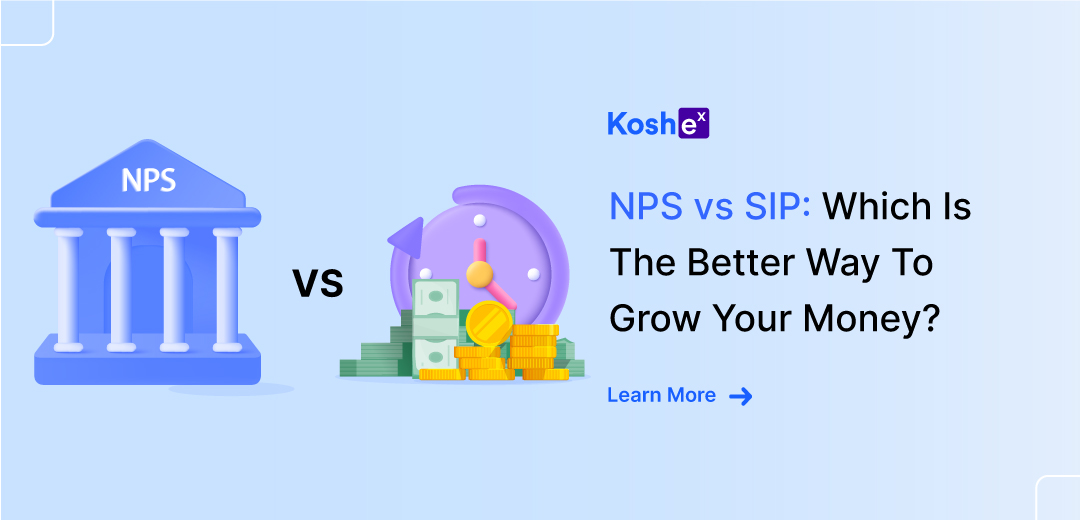Investing is an essential component of financial planning and one of the best ways to get your money to work for you. In India, it has become a topic of significant interest. Whenever asked about their preferences, investors often claim two of the most popular investment avenues as their preferences, i.e., real estate and equity investments. But which one is better? Secondly, which one is ideally suited for you? To know about this, you need to understand the nuances of both of these investment avenues. So, let’s dive deeper into a comprehensive comparison of real estate vs. equity investments in India with Koshex.
Real Estate Investment
Real estate investment involves purchasing properties or even land. This includes residential apartments, commercial spaces, or land, including agricultural land. Interestingly, these are not the only options for investing in real estate.
The concept of Real Estate Investment Trusts (REITs) has gained much popularity in recent times, where you can invest in the real estate sector digitally. REITs are basically corporations that pool money from investors and invest in income-generating real estate. Investments in real estate come with huge capital requirements, therefore, REITs allow retail investors to invest in real estate even with small amounts. The returns generated from these estates are distributed to the investors. In simple terms, REITs act as mutual funds for the real estate sector.
Here are some key aspects of real estate investments in India:
- Tangible Asset: Real estate investments provide physical assets that can be seen and touched. This gives you a sense of security and ownership. The feeling of owning your own house is a dream for most people.
- Steady Income: Rental income from real estate properties can offer a regular, predictable, and steady cash flow. This makes it appealing to investors looking for a passive income source without any hassle or risk.
- Long-Term Investment: Apart from the rental income, real estate also offers gains in capital appreciation. The value of real estate typically appreciates over time, and therefore, long-term investments often yield substantial profits. In addition, it also serves as a hedge against inflation.
- Liquidity Challenge: Buying and selling real estate can be time-consuming and may not always yield quick returns. Further, it also involves significant transaction costs in terms of brokerage, stamp duties, etc. Thus, real estate investments generally have lower liquidity as compared to other avenues. But if you invest in REITs, you can sell your investments instantly, allowing you the desired liquidity while earning the benefits of real estate investing.
- Substantial Investment: The costs of real estate properties, in most cases, run into lakhs and crores. Thus, it involves a substantial amount of initial investment. In case you go for REITs, you can invest a low amount, usually in the thousands.
- Maintenance and Costs: Property management, maintenance, and taxes are responsibilities that come with real estate investment, impacting overall returns.
In essence, real estate investments are lucrative, but they come with their own set of liquidity challenges, substantial investment, and associated costs. REITs offer a better alternative to conventional real estate investments as they come with low initial investment requirements, high liquidity, and lower associated costs. But before you finalize your investment, let’s take a look at equity investments.
Equity Investment
Equity investment refers to buying equity shares or stocks. The most prominent method is to directly buy and sell shares of publicly listed companies. But when you dive deeper, you will realize there are various ways in which you can invest in equities. These include share investments, startup investments, mutual funds, etc. Here are some critical aspects of equity investment in India:
- Ownership Stake: When you invest in equities, you buy a portion of ownership in a company. It gives you the potential to benefit from the company’s growth and profitability. The value of your mutual fund investments also increases in case of a rise in the value of equity shares.
- Liquidity: Equity investments are highly liquid. Stocks can be bought and sold on stock exchanges, often within seconds at the click of a button. The same applies to mutual funds.
- Diversification: Investing in stocks allows you to diversify your portfolio by buying shares in different companies across various sectors. Further, you can also invest in different equity-linked investment instruments like mutual funds, shares, index funds, etc. These funds act as a great diversification tool as they are invested in shares of different companies at the same time.
- Volatility: The stock market can be highly volatile, with prices subject to frequent fluctuations, especially in the short run. This can be both an advantage and a disadvantage, depending on your risk tolerance and investment or trading strategy.
- Dividend Income: Many companies pay dividends to their shareholders, providing a regular source of passive income. A dividend essentially encompasses the distribution of profits to the company’s shareholders. Whether shares or mutual funds, you will receive dividends if the company declares the same.
Real Estate vs. Equity Investment in India: Comparative Analysis
While you have understood the essential nuances of both real estate and equity investment, it’s time to have a detailed comparison of both avenues to help you decide which one is the ideal investment avenue for you:
| Parameter | Real Estate Investment | Equity Investment |
| Tangibility | It involves investing in tangible assets and physical properties (except REITs). | It involves investing in intangible assets and getting ownership of shares in companies. |
| Mode of Investment | In most cases, you have to make investments offline. However, REIT investments can be done online. | Equity investments in companies listed on recognized stock exchanges should be done online. For mutual funds, you can approach a distributor or directly invest through platforms like Koshex. |
| Income Generation | Steady rental income and gains from capital appreciation. | Dividends income (depends on company) and potential capital gains. |
| Liquidity | It has low liquidity due to a slow buying/selling process. | High liquidity as you can quickly buy/sell equities on stock exchanges. |
| Risk and Return | Generally, carries a lower risk and has slow capital appreciation alongside regular rental income. | Carries higher risk with the potential for rapid appreciation or decline in value. |
| Diversification | Limited diversification options within real estate. | Wide range of stocks and funds for diversification. |
| Capital Requirements | You need higher initial capital for investment in real estate. | You can start equity investment with as low as Rs. 100. |
| Monitoring and Management | You need to ensure property management and maintenance. | You need to do research and performance tracking of your stock or fund. |
| Taxation | Rental income is taxed at the tax rate applicable to you while capital gains are taxed based on the period of holding. Further, you can claim tax benefits like deductions on home loans, etc. | Dividends are taxed at the tax rate applicable to you while the capital gains are taxed based on the period of holding. Investment in ELSS funds allows you tax benefits as well. |
| Ideally Suitable For | Ideally suitable for investors who are well settled in their career and can take up the initial cost of investment. | Ideally suitable for investors across all the categories, including students. |
In a Nutshell
Choosing between real estate vs. equity investments in India depends on your financial goals, risk tolerance, and investment horizon. Real estate offers the advantage of tangibility and steady rental income, while equity investments provide liquidity, diversification, and the potential for higher returns. It is often advisable to diversify your investment portfolio to mitigate risks effectively. However, most early-stage investors prefer equity investments over real estate for one significant reason, the size of initial investment. Real estate investment can involve lakhs to crores of investment, which is difficult for investors at an early career stage. Thus, equity investment is ideally suitable for them.
Koshex allows you to invest in equity-related funds that earn market-linked returns while also diversifying your portfolio. With 5000+ different funds to choose from, you can invest in the fund that best suits your investment goals and risk tolerance. It also saves you significant time and effort on research as these funds are managed by professional and expert fund managers. Start your equity investments now with Koshex.
Frequently Asked Questions
Q: Which is better for long-term wealth creation – real estate or equity investment?
A: Both real estate and equity investments can be effective for long-term wealth creation. It depends on your financial goals and risk tolerance. Diversifying your portfolio with both can be a balanced approach.
Q: Are there any tax benefits associated with real estate investments in India?
A: Yes. There are tax benefits like deductions on home loan principal and interest payments and deductions for property-related expenses for real estate investments. Additionally, Sections 54 and 54F of the Income Tax Act provide exemptions from LTCG tax that can save a sizeable portion of the profits of real estate investors.
Q: How can I start investing in equities in India?
A: To invest in equities, you first need to decide on the mode of investment i.e., shares or funds. Then you need to decide the broker or platform through which you wish to invest. After you open your demat account or register with the broker, you can start buying and selling stocks on Indian stock exchanges like NSE and BSE. For investing in mutual funds, you don’t need to open a demat account. You can directly invest in your desired mutual funds through Koshex and enjoy a seamless investing experience.









Leave a Comment